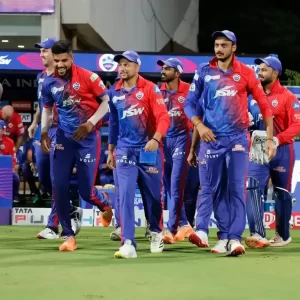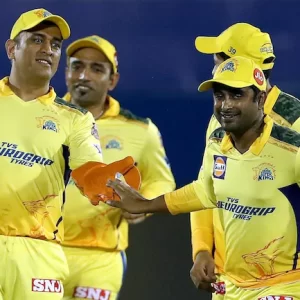I would just like to write about some random happenings around the world. I will start with Ashwin’s views about the reverse or switch hit, move onto the Aussies slamming Smith for a poor review and Sri Lanka’s win.
Switch hit or reverse sweep
This bit of batting is an exciting innovation. There were calls to ban this shot. It does not really make any sense. This is the evolution of batting and such shots must be encouraged rather than discouraged. There were counter arguments against this shot. What if the bowler changes from right-arm to left-arm and vice versa without information the batsman or the umpire? What if the bowler having informed the umpire that he will be bowling right-arm-over the wicket, suddenly switches to right-arm-round-the-wicket? I will say that such innovative bowling techniques are most welcome. It requires great skill to pull off such an incredible feat. Just imagine a bowler running onto bowl over the wicket. It will be next to impossible for him to switch in the middle of the runup. Ambidextrous bowlers are present in the game but they are few and far between.
All I am saying is that, just like the above, even the batsman must be skilled enough to play either the reverse sweep or switch hit. Kevin Pietersen used to hit the ball over long on or long off which requires higher skill and power when compared to Root’s over third-man or fine-leg because he basically used the bowler’s pace. This is a shot which if it goes wrong, the batsman will be dismissed. It actually opens up an avenue for the bowler to pick up a wicket.
Ofcourse, to make matters even, LBW rule must be changed. Ashwin, who is known for such refreshing thinking believes so. He has called for the batsman to be given out whenever the batsman switches, irrespective of whether the ball pitched outside the leg.
The current law
Currently, if the ball is pitched outside the leg, it is not out. It does not matter whether the batsman is plumb because outside the leg-stump is considered a blind spot for the batsman. During the current time, when the pitches all over the world have slowed down and more rules to favour the batsmen, this rule must be revisited. Nonetheless, Ashwin’s call to give a ruling in favour of the bowler is something that must be seriously discussed.
Ashwin’s view
“This is where I have a small difference of opinion. As a bowler, I am informing you that I am bowling left-arm spin from over the stumps and I have this (leg side) field. You front up to that as a right hander, but you play that reverse sweep, and hit like a left-hander. But when Root does that, he won’t be out lbw because of the blind spot. It’s only a blind spot when you are at your normal stance. Once you play the reverse sweep and have a left-handed stance, it’s no longer a blind spot. It’s front on.
“My question is not whether he can play reverse sweep or not, whether it’s negative bowling strategy or not (bowling outside leg stump), my point is about lbw. It’s unfair that it’s not ruled lbw.
“Let batters play the switch hit, but give us LBW when they miss. How can you say it is not LBW when the batter turns? If they start giving that out in all formats of the game, some parity could be retained between bowling and batting.”
I sincerely hope that the ICC gives serious thought to not just Ashwin’s view but in general, think about how the game has become extremely unfair for the bowlers? How in a T20 game, specialist bowlers are overlooked for bowlers who can bat? The game is crying out for some sort of sanity to the proceedings and this LBW decision irrespective of where the ball pitched will go a longway to correct that anomaly.
Steve Smith’s disastrous DRS
In the 2nd test against Sri Lanka, Steve Smith opted to review the LBW decision because he must have felt that the ball was going over the stumps but to his utter horror, the replay returned 3 reds and Smith was embarrassed with his review. The Australians however, weren’t pleased that Smith took that review when it was a clear decision. It was a desperate and ill-advised review on the part of Smith.
Cricket commentator Adam Collins tweeted: “I’ve seen a lot of bad reviews — they happen. But Smith’s one of the worst; totally lacking in broader match awareness with so many batters to follow and fielders around the bat.”
Former Victorian captain Darren Berry posted: “That is a very poor review need to be accountable and honest at both ends irrespective of the player absolutely plumb.”
The Australian’s Peter Lalor branded it “one of the worst reviews you will ever see”
He was also accused of being self-centred and cares about his batting only. These were strong words coming from respected journalists. I have never seen Smith take a review without consulting his partner. In this case, it was Marnus Labuschagne who was with him. Perhaps, Labuschagne must have told Smith that it was plumb and he must have discouraged Smith from taking the review. Ofcourse, the batsman will also know when he is plumb but to accuse him of being self-centred, I think that is taking the brain-fade a bit too far.
Sri Lanka’s win
Sri Lanka is going through a bad phase in the history of the country. Everyone know how passionate they are towards the game. In these dark times, the fans would have turned to the Sri Lankan team to provide some solace. The first test loss must have hurt them badly because Sri Lanka were never really in the game but the performance in the 2nd test against the world no. 1, must have soothed their hearts. Having conceded more than 350 to Australia, everyone must have thought that it is beyond Sri Lanka but they showed great resilience and excellent temperament to not only gain a significant lead but to bowl Australia out cheaply. However, Sri Lanka have a long way to go before they are a force to be reckoned.
Other Ashwin related blogs can be read here, here and here.



